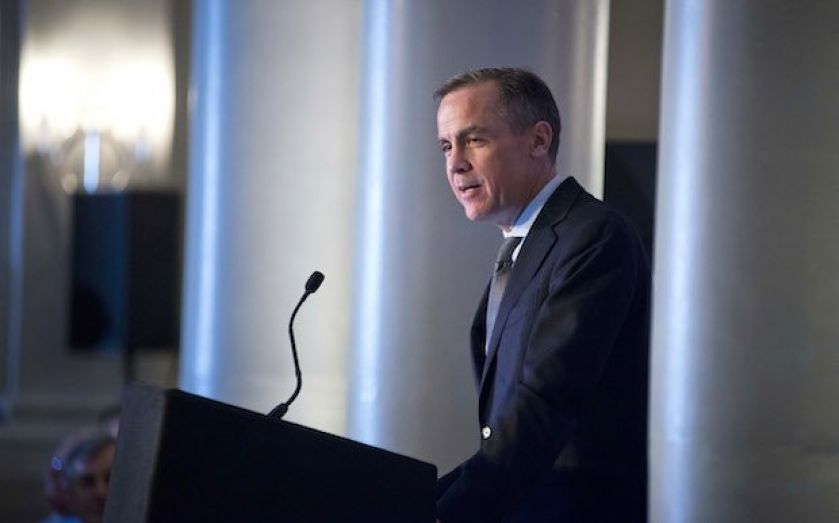4 reasons why the Bank’s growth forecasts are far too optimistic

While the Bank of England spent most of 2013 issuing forecasts for the British economy which seemed far too conservative almost straight afterward, analysts at Deutsche Bank think they’ve just done the opposite.
According to chief UK economist George Buckley, the Bank’s projection of 3.4 per cent growth in 2014 is 0.2 percentage points higher than the most bullish independent forecast recorded by the Treasury.
Deutsche Bank offers up four short-term reasons why it now expects growth to moderate to more like two or 2.25 per cent by the end of the year.
1. A strong pound
Sterling’s trade weighted index has risen 11 per cent in as many months, climbing back after a major decline during the financial crisis and subsequent recession.

Deutsche Bank attributes about half of the tightening in monetary conditions since the end of 2011 to a stronger pound. If monetary policy loosens again in the Eurozone, the strength of sterling could make a significant export contribution to GDP difficult.
2. No real wage recovery
Buckley highlights how far UK real wages have dipped in comparison to shallow former recessions.

Claire Crawford of the Institute for Fiscal Studies has previously suggested that the drop in real wages partly explains why unemployment has risen by less than might have been expected after the UK’s dire economic performance, but the fact that real wages are still 7.5 per cent below their peak is likely to keep weighing on consumption.
3. Faster deficit reduction
As Robert Chote, head of the Office for Budget Responsibility noted in March 2013, “the decline in cash borrowing now appears to have stalled”.

Buckley said:
Taken at face value it would appear that the slowing in austerity witnessed over the past two years relative to what was done in the two years before will have helped support economic growth… The same cannot be said, however, about either the structural deficit or real government spending over the coming years. Here it is clear that austerity is being stepped up a gear which could take its toll on the recovery.
4. Rising rates and fragile households
Though Deutsche thinks monetary policy will stay on hold for longer than the market does, it notes that gilt yields have nearly doubled in 18 months.
Buckley adds: “The Bank of England’s own models suggest that the greatest impact from higher interest rates could be felt within around a year from the point at which they rise.”

In combination, heavily indebted British households are still incredibly sensitive to changing rates.
Though the hit to income of a one percentage point rate hike would be less than at the height of the crisis, it would still be enough to put a significant dent in recent consumption growth.